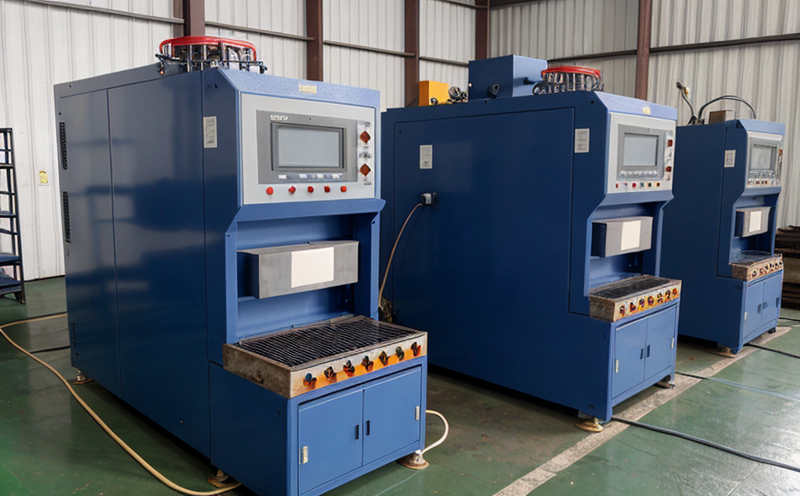IEC 61039 Resin and Polymer Raw Inputs Testing
The IEC (International Electrotechnical Commission) standard 61039 is a crucial reference document for the testing of raw materials used in industrial manufacturing, particularly those involved with resin and polymer components. This standard ensures that all materials are tested to meet stringent quality and safety criteria before they enter production processes.
Resins and polymers form an essential part of modern industrial manufacturing because of their versatility and durability. These materials can be found in various sectors, including automotive, electronics, aerospace, and construction. The raw inputs used to produce these resins and polymers must meet strict specifications to ensure the final product's performance, reliability, and safety.
IEC 61039 focuses on the physical and chemical properties of raw resin and polymer materials. It includes a wide range of tests designed to evaluate the quality of inputs based on their mechanical strength, thermal stability, electrical insulation properties, and resistance to environmental factors such as humidity and temperature.
The testing process typically involves several steps. First, samples are collected from suppliers or production batches. These samples undergo thorough preparation, which includes cleaning, drying, and sometimes grinding if necessary. The prepared specimens are then subjected to a series of tests that can include:
- Thermogravimetric Analysis (TGA) for determining thermal stability
- Differential Scanning Calorimetry (DSC) for assessing melting and crystallization points
- Infrared Spectroscopy (IR) to identify the chemical composition of the resin or polymer
- Dynamic Mechanical Analysis (DMA) to evaluate mechanical properties under varying conditions
- Abrasion Testing to measure resistance against wear and tear
- Tensile Strength Testing for evaluating the material's ability to withstand stretching forces
The results of these tests are analyzed meticulously, ensuring that each batch meets or exceeds specified quality standards. Compliance with IEC 61039 is essential not only for maintaining product integrity but also for adhering to international regulations and industry best practices.
By adhering strictly to this standard, manufacturers can enhance their reputation by demonstrating commitment to quality assurance. This approach also fosters trust among clients who rely on consistent product performance. Moreover, meeting such stringent testing protocols helps companies navigate global markets more effectively, as many countries require adherence to international standards for import and export.
Benefits
- Enhanced Product Quality: Ensures that raw materials meet the highest quality standards, leading to improved product performance and durability.
- Increased Market Access: Compliance with international standards opens doors to global markets where these specifications are mandatory.
- Improved Brand Reputation: Demonstrating adherence to rigorous testing protocols enhances customer confidence in the brand's reliability and expertise.
- Regulatory Compliance: Ensures that all products comply with local and international regulations, reducing legal risks.
EuroLab Advantages
EuroLab specializes in providing comprehensive IEC 61039 testing services tailored to the needs of industrial manufacturing companies. Our team of experts ensures that every test is conducted with precision and accuracy, using state-of-the-art equipment and methodologies.
We pride ourselves on offering a range of additional value-added services beyond mere testing, such as consultation on best practices for raw material selection and quality assurance programs. Our commitment to excellence extends to our customer service, which includes prompt turnaround times and detailed reports that are easy to understand and act upon.
Our network of laboratories across Europe allows us to provide localized support to clients in various regions, ensuring seamless operations regardless of location. With a strong emphasis on sustainability and continuous improvement, EuroLab remains at the forefront of technological advancements in material testing.
International Acceptance and Recognition
The IEC 61039 standard has gained widespread acceptance across industries due to its comprehensive approach to evaluating raw materials. Many countries have adopted this standard as a benchmark for quality, ensuring that products meet the necessary safety and performance criteria.
For instance, Europe's directive on electrical equipment requires adherence to IEC standards for many applications involving resins and polymers. Similarly, North American manufacturers often follow these guidelines to ensure compliance with regulatory bodies like the FDA or similar agencies in other regions.
The international recognition of IEC 61039 is a testament to its effectiveness in promoting consistent quality across borders. By participating in this testing process, companies demonstrate their commitment to maintaining high standards and fostering trust among stakeholders globally.





